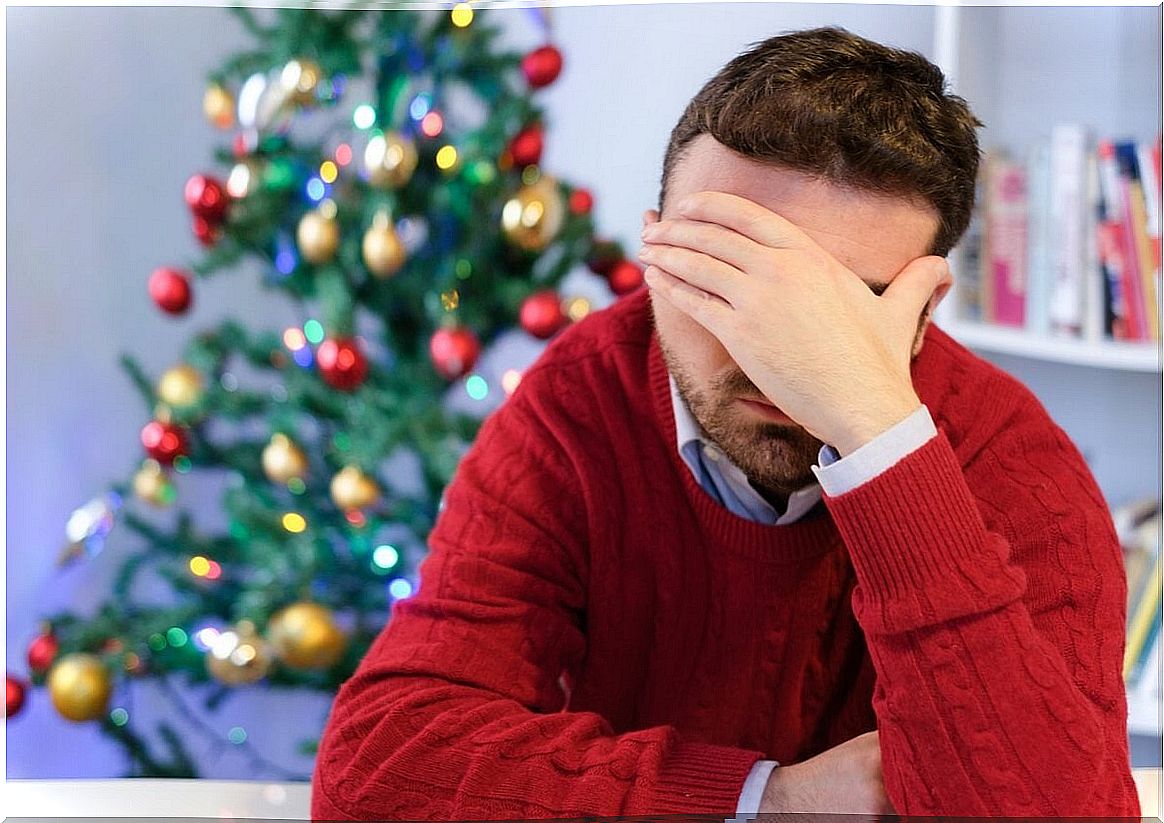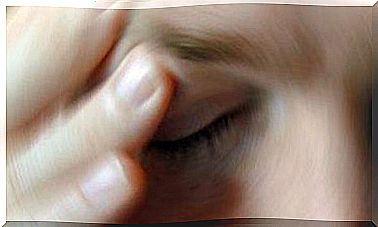White Depression Or Christmas Blues: What Is It And How To Overcome It?
The white depression or Christmas blues affects quite a number of people. The arrival of these dates is not always a reason for illusion, joy or magical festivity. At times, a sticky melancholy arises in us, a constant discouragement and a gloomy feeling that contrasts with many of those around us, eager to enjoy these dates.
A recurring fact that accompanies these states is the feeling of loss and longing. These days, it is common to remember those who are no longer with us. Those absences are, perhaps, more painful at this time. In addition, there are also other factors, such as stress, family disagreements, financial problems or even the weight of loneliness.
On the other hand, something important should be noted. The well-known Christmas depression is defined as a seasonal emotional disorder. That is, it may lose strength as the year progresses. However, in certain cases it can form a serious clinical picture when combined with anxiety or dragging, previously, an undiagnosed depression.
White Depression or Christmas Blues: Definition, Symptoms, and Treatment
The white depression or Christmas blues defines a psychological condition marked by discouragement, negativity and dejection during these festivities. Not everyone delights in those illuminated streets, in the crowds of people shopping in the malls or in the Christmas songs playing almost anywhere.
Not that we become a Christmas Grinch or Mr. Scrooge, the classic character of Charles Dickens, who disliked Christmas very much. White depression does not arise from hatred of these dates, but from the emotional dejection that it provokes. It is something more frequent than we think and, in fact, the number of cases increases every year.

What Symptoms Does White Depression Cause?
This condition has been studied for decades. Research, such as that conducted at Wright State University in Dayton, Ohio, shows us something interesting. It is true that during these festivities the mood worsens, however, the end of them also represents another source of stress and suffering.
In these situations, it is essential to be attentive to the symptoms.
Cognitive symptoms (thoughts)
- Total loss of interest in the Christmas holidays. They are considered useless or oriented only to marketing.
- Negative and catastrophic thinking rises.
- The person may not stop thinking about those they no longer have by their side, remembering loved ones who are no longer there.
- You can also take stock of your own life, focusing on the bad memories before the good ones.
- Concentration problems appear.
- It is common to feel a certain mental fog, that is, we perceive ourselves more clueless or mentally exhausted.
Emotional symptoms
- Persistent sadness
- A melancholic state, that situation in which we experience longing and sorrow.
- Changes in mood, such as anger, fits of rage, rage, etc.
- Psychological anguish appears, a feeling that everything is going very wrong, that lack of hope floods every aspect of life.
Behavioral symptoms
- No interest in celebrating these festivities.
- Upset when going outside and seeing the Christmas decorations.
- Experiencing stress when shopping, having to have dinners and family gatherings.
- The person prefers isolation and solitude.
- High exhaustion.
- Changes in diet (loss of appetite or compulsive hunger).
- Sleep disturbances (insomnia or hypersomnia).
What Causes White Depression or Christmas Blues ?
The white depression or Christmas blues does not appear spontaneously with the first lighting of Christmas lights. There are causes that orchestrate it. There are even comorbid conditions that accompany it and that worsen in this period. Let’s know what is behind these realities.
- Loss of loved ones. At this time the pain for those absences appears.
- Increased sensitivity to stress and anxiety. The frenetic pace of these dates can take its toll on us if we already deal with those realities mentioned above.
- We must also highlight environmental factors. The lack of light and the cold also orchestrate this feeling of discomfort.
- Going through a difficult economic time can make us live this holiday with regret.
- Social and family pressures can act as that psychological pressure, capable of undermining our spirits and desire.
- On the other hand, there is something evident. Christmas marks the end of a year and the beginning of a new one. This invites us to reflect, to value certain personal realities.
- Loneliness is another risk factor
Many times, we can come to Christmas with an undiagnosed depressive disorder. These dates can aggravate that psychological condition.

What can we do to manage the holiday blues?
This form of depression affects more and more people. The most recurrent fact is living alone. In these situations it is important to have some support, friend or association with whom to spend these dates. This is a first factor that we must consider. What else do we put to do?
Do nothing if we don’t feel like it
Family lunches and dinners, shopping, social commitments, having to give gifts, prepare this and that … Let’s learn to set limits and do what our hearts feel. This is a principle of health and survival that we must practice on a daily basis.
Give us quality moments
These dates may force us to meet numerous social commitments. Now, beyond “looking good with everyone” the priority is “looking good with yourself.” Therefore, it is best to give ourselves time to enjoy the things that we like and that we love from the heart.
Rationalize thoughts
“Everything is going to go wrong, this new year will be worse than the previous one, this sadness is going to kill me …” If we have this in our heads, we must try to stop it. It is time to rationalize thoughts, to deactivate negative approaches, irrational beliefs and ideas that only hurt us. Let’s take care of our internal dialogue.
Those who are no longer here do not want to see us sad
The absence of someone important can be the trigger for depression at this time. If so, would that loved one like to see us like this? The answer is probably no. We must try to be better in his honor.
White depression or Christmas blues: set new resolutions, design a life with meaning
As the neurologist Viktor Frankl said: “give your existence a purpose and meaning and you will cope better with difficulties.” Let’s do it, set new goals for the year ahead, and remember our values and future goals.
It is a fact that the Christmas depression repeats itself year after year. Do not hesitate to request specialized help. In case of not managing this mental reality, we can lead to a major depression. Let’s keep it in mind!









